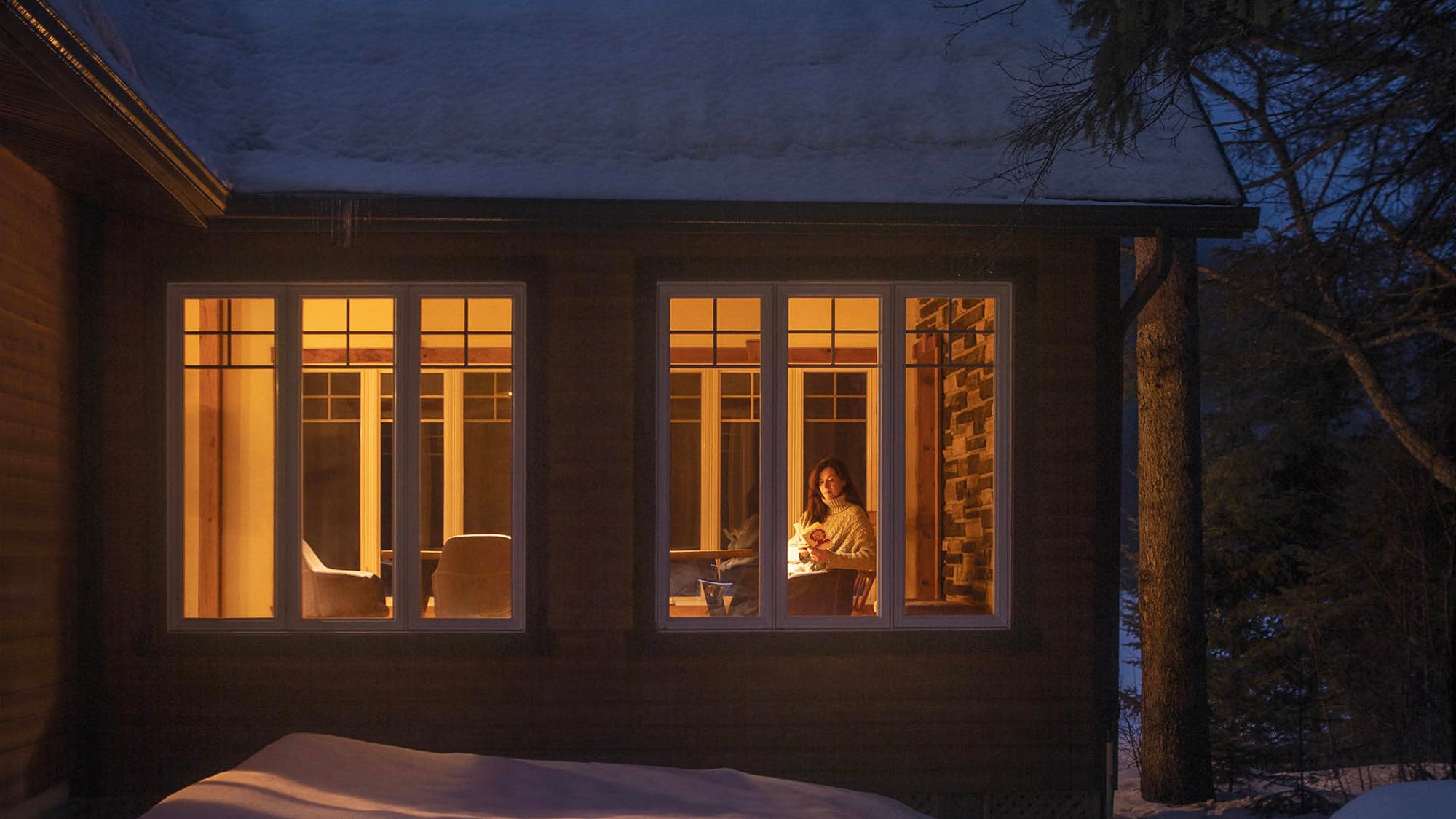Winter consumption peaks: answers to your questions
February 23, 2023 4 minutes readingWhen Hydro-Québec’s power grid needs to respond to an increased demand for power, the preferred solution for managing this peak is to reduce our electricity consumption or shift our use to another point in time. This is why Hilo challenges are offered during peak periods. But why exactly is this the best option? And does slightly changing your behaviour during peak periods really have an effect? Here are a few answers to your many questions about this issue.

Why do peaks in demand occur?
Peaks happen during periods when the grid is experiencing maximum power loads to fulfill a very high demand for electricity. They occur in winter when it is very cold outside and at certain times of the day when most Quebecers use more electricity — mornings and evenings, when the heat is turned on, meals are cooked, laundry is done, etc. Because the population of Quebec is consuming a lot of energy at the same time, all resources are used and, therefore, we are using the power grid at its maximum capacity.
Is our power grid that fragile?
Not at all! We have enough infrastructure to meet our electricity needs. But with 80% of Quebec households heated by electricity every winter, our energy needs practically double for around a hundred hours compared to the summer. The entire grid has a capacity of approximately 40,000 megawatts, and our record capacity, as recorded in February of 2023, is approximately 42,700 MW. By spreading our energy use more evenly over time, we give Hydro-Québec some breathing room for managing demands on the grid.
Can’t we just buy more energy from somewhere else?
Importing electricity can be costly (market prices vary) and is not necessarily environmentally friendly, because the energy we purchase might come from energy sources that are not as clean as our own. Each year, the number of hours for which Quebec needs to import energy is very limited because we’ve been able to regulate demand with initiatives such as Hilo challenges.
So why don’t we just not sell our electricity and store it instead so we can use in the winter?
Throughout the year, Hydro-Québec’s energy exports contribute to creating economic wealth for the entire population. During peak periods in winter, we can continue to fulfill Quebec’s needs without having to stop our exports. How? By efficiently managing demand, notably by working together to reduce our consumption at home for a few hours. If we don’t change our consumption habits, will that cause the entire grid to go down? A system-wide blackout would never happen if demand exceeded supply. Peaks can be foreseen in advance, so we can prepare for them! All year long, Hydro-Québec maintains, updates, and optimizes its infrastructure in preparation for peak periods in winter. Teams evaluate the means and resources at their disposal to handle such peaks in demand.
If we don’t change our consumption habits, will that cause the entire grid to go down?
A system-wide blackout would never happen if demand exceeded supply. Peaks can be foreseen in advance, so we can prepare for them! All year long, Hydro-Québec maintains, updates, and optimizes its infrastructure in preparation for peak periods in winter. Teams evaluate the means and resources at our disposal to handle such peaks in demand.
What tools can we use to reduce our consumption during peak periods?
Of course, Hilo offers solutions and products created to make dealing with winter both easy and comfortable — all while earning clients cash rewards. Hydro-Québec also suggests tools for managing peaks in demand such as dynamic pricing, available through the Winter Credit option (by reducing your electricity consumption during peak periods, you receive credits towards your electricity bill) and the Flex D rate (by transfering your electricity consumption outside of peak periods, you save money). Solutions for business and industry also exist so that all sectors of society can contribute to energy efficiency.


